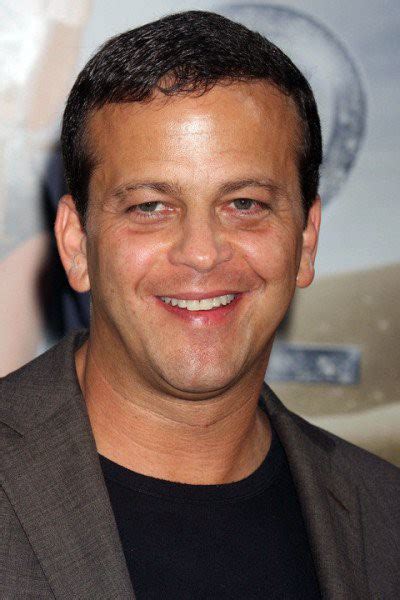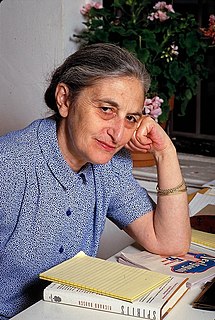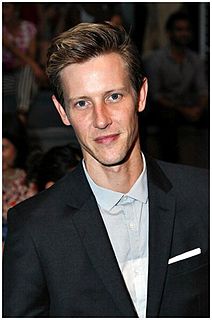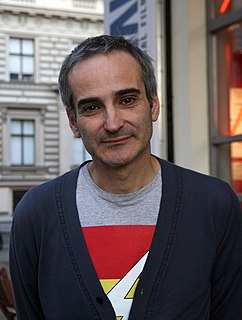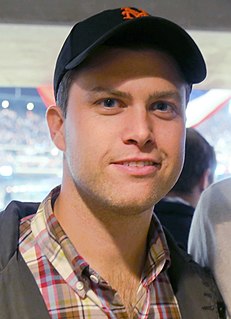A Quote by Leigh Whannell
That's one of the great things about creativity. You labor away in a room, and when you're writing a film, it couldn't be more of a solitary activity or a lonelier job, but if you then write a film that gets made and goes out into the world, it kind of flies away from you. It's not yours anymore.
Related Quotes
Film writing and concert writing are two very different things. In film writing I am serving the film and it tells you what to write. I have to stay within the parameters of the film. In writing concert music for the stage I can write anything I want and in this day and modern age rules can be broken.
There is something demoralizing about watching two people get more and more crazy about each other, especially when you are the only extra person in the room. It's like watching Paris from an express caboose heading in the opposite direction--every second the city gets smaller and smaller, only you feel it's really you getting smaller and smaller and lonelier and lonelier, rushing away from all those lights and excitement at about a million miles an hour.
Film, for me, is in two stages. One is when I write the script more or less on my own - that's the nice bit. And then comes for me the unpleasant bit when they all go off, 100 people - actors and camera people and film and sound - and I stay away. When they go into the editing room, I come in again, and that's the bit I like.
I know when I watch a film at this point, if I completely lose myself in the characters and the story and the world of the film I know that it's at least in my opinion, that was great. Otherwise I'm thinking: "Oh I know they were just doing A, B and C, right before they walked into the scene, then the camera was there, then they probably took the shot from this reverse close-up and moved it into this." When all of that drops away then I'm like: "Okay this was phenomenal, this was fantastic." I mean, any film or TV performance in general is probably good.
When you're making a film, you don't really have time to consider what the whole of your film is. And then, when you're releasing your film and promoting your film, you're looking at it in a different way. Then, as you move away from it, you start to look at it objectively and think, 'What could I have done better?'
I hate to write and spend months just waiting for the film to get financed. Then when you start preparing the film and you shoot it, you've already forgotten why you wanted to make the film in the first place. I like to have some kind of coherent energy that takes you through writing, preparing, shooting.
Initially, I think I was eager to get off Staten Island and go away for school, that kind of thing. Then what you do maybe 10 years after that, you start maybe appreciating all the great things about the place you grew up. You can go back and enjoy it because you don't have that angst or sense of struggle to get away anymore.
With The Exorcist we said what we wanted to say. Neither one of us view it as a horror film. We view it as a film about the mysteries of faith. It's easier for people to call it a horror film. Or a great horror film. Or the greatest horror film ever made. Whenever I see that, I feel a great distance from it.
It's not often I get to do a film that turns out good. Plus, there just aren't that many great directors out there. There are a thousand different decisions that need to be made with each script and it's the good directors that can make those decisions. It's a long and complicated process in regards to what looks good on paper. Working on a bad film can be fun too. It can be a good exercise that gets you writing.
About my work, my first film, Écoute le Temps (Fissures), was positioned by distributors as a thriller because they thought that it would sell more easily. But it was surely a mistake, as that kind of viewer did not take the bait, and it drew away its potential core audience, those whom I met in festivals and in various Q&As who seem to appreciate that particular kind of cross-over arthouse film.
Unfortunately, when you're working in film, it's this huge machine, and you've got to get everyone right there, so you get kind of locked into things. I'm not sure where the artistry in film making is. It's usually that moment when you're on set and you're working with the actors. That's the time to play around, the moment of theater. And then you can shape things. But a lot of it is just managing stuff. It's upsetting because you get away from the core.
I definitely write about things that are universal, that everyone can identify with. You're supposed to write about things you're passionate about and I guess I am a foodie. I do love food and it's kind of like I'm an eccentric observationalist guy. To make it kind of universal, I try a lot of different things. When I first started writing this, I was like, 'No food.' Then, you know, it just always goes there.

